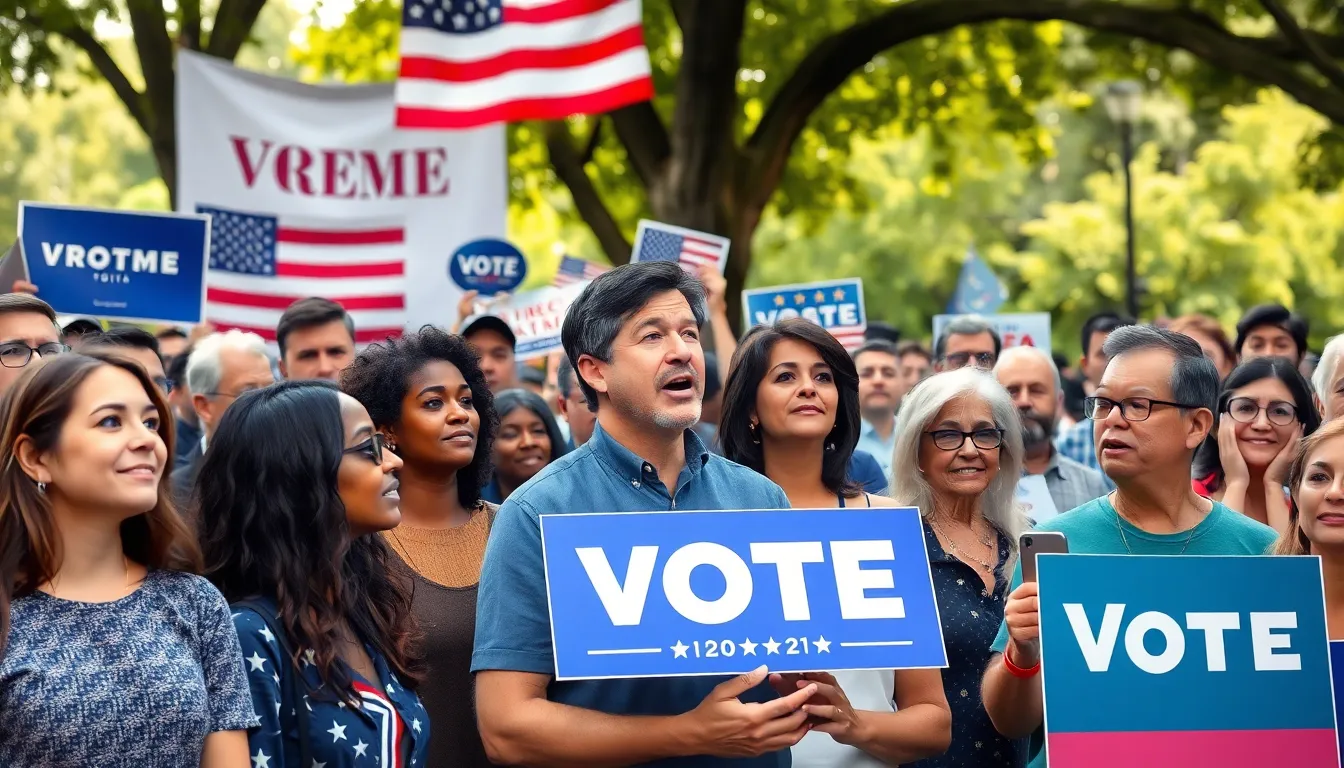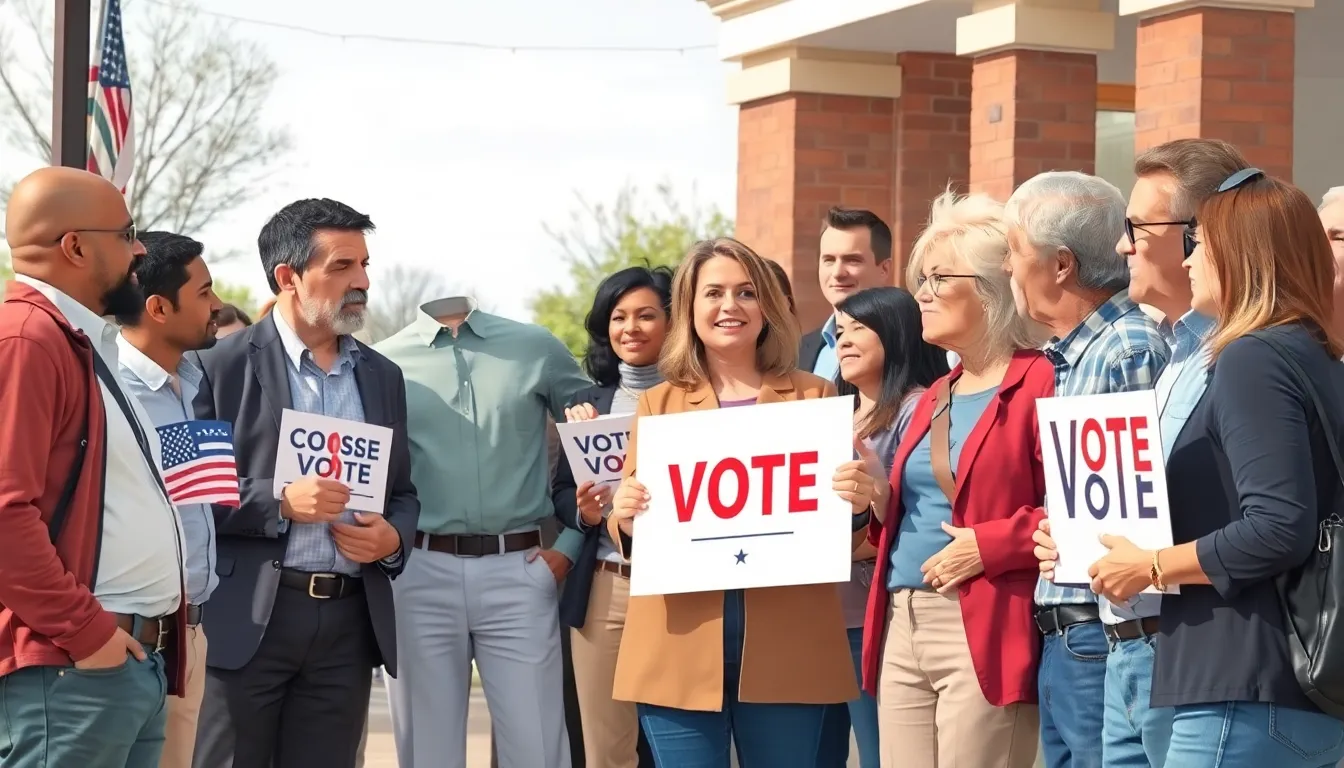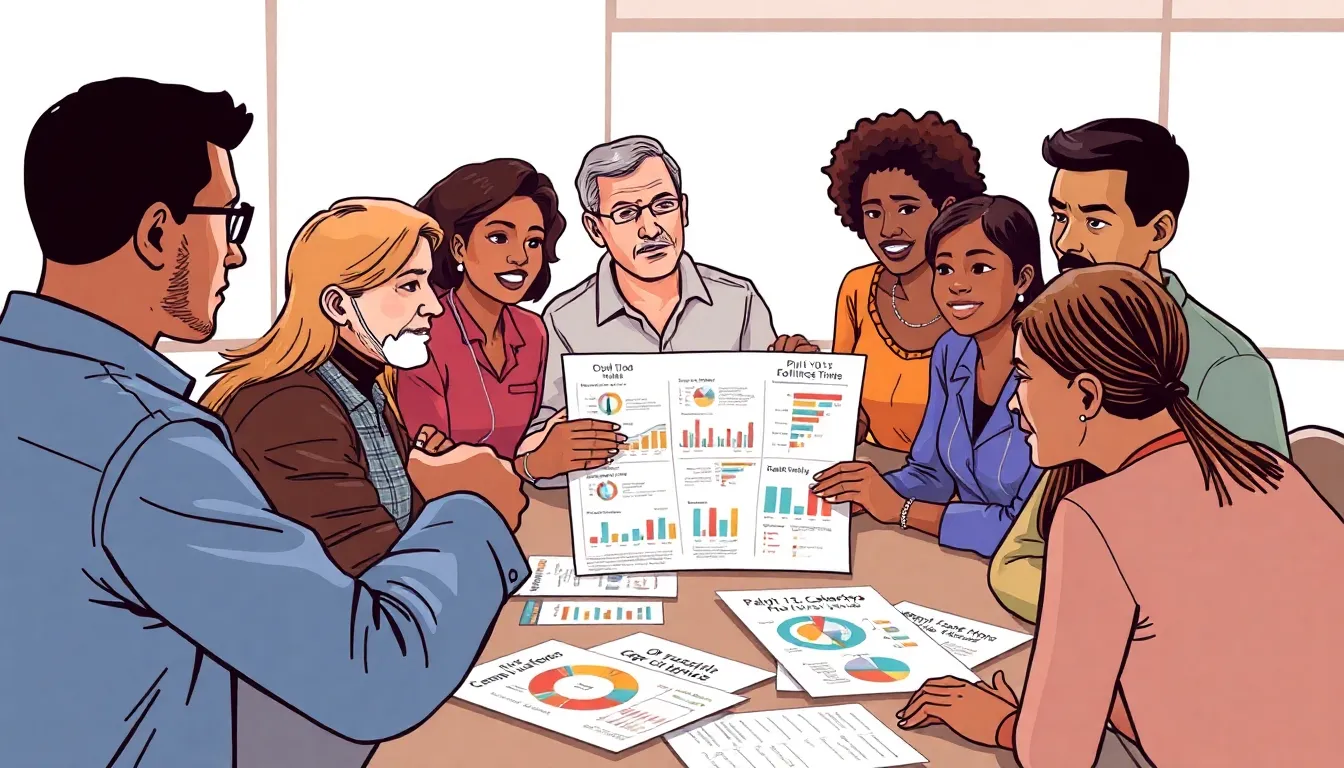In the grand theater of politics, narratives take center stage, captivating audiences with tales that can sway opinions faster than a politician can change their stance. These narratives aren’t just stories; they’re the lifeblood of campaigns and the secret sauce behind public perception. Whether it’s a rousing speech or a viral meme, political narratives shape how we view the world and the leaders we trust—or don’t.
Table of Contents
ToggleUnderstanding Political Narratives
Political narratives shape how society interprets events and information. They serve as frameworks for understanding complex political realities and influence individual and collective sentiments.
Definition of Political Narratives
Political narratives consist of interconnected stories that communicate political messages and ideologies. These narratives include themes, symbols, and characters that resonate with specific audiences. By using language and imagery, they simplify intricate concepts and create emotional connections. Effective narratives present reality in a way that supports political agendas and fosters identification with political figures or movements.
Importance in Political Discourse
Political narratives play a crucial role in shaping public discourse. By framing issues, they provide context for political debates and discussions. These narratives facilitate persuasion, helping politicians connect with constituents and rally support. Through reinforced themes, narratives can influence voter behavior and public attitudes toward policies. In the digital age, the rapid spread of narratives through social media enhances their impact, allowing them to reach wider audiences quickly.
Types of Political Narratives

Political narratives manifest in various forms, each serving unique purposes in influencing audiences. Understanding these types aids in recognizing their significance within political discourse.
Compelling Personal Stories
Compelling personal stories engage voters. They humanize politicians and make their platforms relatable. This narrative type often features anecdotes that highlight individual experiences, struggles, and victories. Through storytelling, politicians connect emotionally with constituents, fostering trust and empathy. For instance, a candidate sharing their background might illustrate the challenges faced by regular families. Such narratives simplify complex issues and inspire hope among voters, making them feel understood and prioritized.
Ideological Frameworks
Ideological frameworks encompass broader worldviews and values that shape political rhetoric. These narratives help define party identities and communicate core beliefs to the electorate. Through themes like freedom, equality, and justice, politicians articulate their vision. In turn, these frameworks encourage voters to align their identities with specific parties. For example, discussing social justice can galvanize support among progressive voters. By framing policies within these ideological principles, politicians clarify their positions and attract likeminded individuals.
The Role of Media in Shaping Political Narratives
Media plays a pivotal role in shaping political narratives, influencing how individuals perceive and engage with politics. Various formats, from television broadcasts to online articles, contribute to forming these narratives.
Traditional Media Influence
Television, print, and radio have historically shaped political narratives by providing in-depth coverage and analysis. News outlets often frame political events, influencing public perception of issues. Anchors and reporters present stories through certain lenses, which can emphasize specific aspects while downplaying others. By selecting what to report and how to report it, traditional media defines public discourse. According to Pew Research, 46% of adults primarily gather political news from television, underscoring its significant impact. Traditional media continues to wield influence over political opinions even in the digital age.
Social Media Dynamics
Social media platforms have transformed how political narratives spread and evolve. Users share content rapidly, amplifying messages while creating echo chambers that reinforce existing beliefs. Platforms like Twitter and Facebook enable direct communication between politicians and constituents, blurring lines between formal and informal discourse. Research indicates that 64% of Americans utilize social media for news, illustrating its role in shaping political views. Viral posts can highlight key issues, sometimes eclipsing traditional reporting. As conversations unfold online, leaders must navigate the nuances of social media narratives to engage effectively with their audience.
Analyzing the Impact of Political Narratives
Political narratives mold public perception and shape opinion formation in significant ways. They craft messages that resonate emotionally with individuals, allowing leaders to connect with constituents meaningfully.
Public Perception and Opinion Formation
Political narratives influence public opinion by framing issues that individuals encounter. Emotional resonance often drives people’s reactions to these narratives, fostering connections based on shared experiences or values. An effective political story simplifies complex realities, making them digestible for various audiences. For instance, a narrative that highlights personal struggles can turn abstract policy discussions into relatable human experiences. This transformation can lead to greater empathy and trust, encouraging constituents to support particular policies or candidates.
Case Studies of Successful Political Narratives
Several political narratives demonstrate remarkable success in shaping public opinion. Barack Obama’s “Hope” campaign resonates as a prominent example. It utilized an uplifting message alongside personal storytelling to engage voters during the 2008 election. Similarly, Donald Trump’s “Make America Great Again” slogan appealed to voters’ desires for restoration and nationalism. Each narrative thrived by tapping into the emotions and values of specific demographics. Case studies like these illustrate the profound impact that well-crafted narratives have on voter behavior and political engagement.
Implications for Democracy
Political narratives significantly influence democracy, shaping both public perception and voter behavior. Understanding the implications of these narratives is crucial to fostering informed citizenry.
Narrative Competition
Competing narratives emerge in the political landscape, each vying for public attention. These narratives often reflect varying values and ideologies, which can create polarization among audiences. Politicians and parties constantly craft stories to resonate with constituents, leading to dynamic struggles in shaping political discourse. The effectiveness of a narrative can determine public opinion, with strong stories engaging voters on emotional levels. When competing narratives clash, it can lead to heightened engagement, yet may also exacerbate divisions.
The Danger of Misinformation
Misinformation in political narratives poses significant risks to democracy. False narratives can spread quickly through social media, misleading voters and distorting political realities. With 64% of Americans relying on social platforms for news, this rapid dissemination can create echo chambers that reinforce misinformation. Political polarization grows as individuals cling to inaccurate narratives, often undermining trust in governmental institutions. Voters increasingly struggle to differentiate between fact and fiction, which hinders informed decision-making and ultimately threatens democratic processes.
Political narratives hold immense power in shaping public perception and influencing voter behavior. They simplify complex issues and create emotional connections that resonate with audiences. As narratives evolve through various media platforms they can either foster understanding or deepen divisions. The rise of social media has amplified their reach but also introduced challenges related to misinformation. Navigating this landscape requires a keen awareness of how narratives can sway opinions and the responsibility that comes with crafting them. Ultimately political narratives will continue to play a critical role in democracy, highlighting the need for informed engagement and critical thinking among voters.



